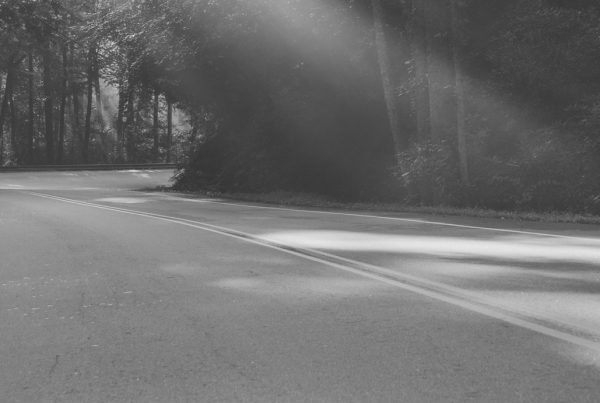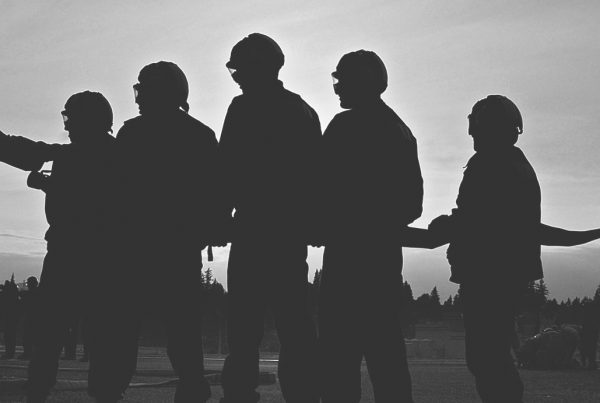
I recently dug out my calculator to do some hard number crunching – I wanted to see what I was up against each week in preparing for our weekend experience. I had this sinking feeling that I was soon going to feel like David fighting Goliath in a battle of time and influence, but I wanted to know my competition well. So I punched in the numbers and what I discovered was staggering.
If you’re like me, you have been given 1.25 hours each week during your weekend worship experience to influence and counter the 166.45 hours that our culture is bombarding your community. That’s right – our own David and Goliath story – happening each weekend inside our local church. Sure, you might have been able to encourage a percentage of your church community to get involved in some sort of small group mid-week experience, or maybe volunteer some time in a ministry environment. But at the end of the day, we’ve been given 1.25 hours to invest, to inspire, to encourage, to provoke, to nudge, to enhance, to reveal, and to lead your community closer to Jesus.
This realization caused me to ask myself these questions:
Am I using this time wisely?
Am I wasting time?
Am I maximizing every minute?
Am I honoring the time my community has entrusted to me (our team)?
Am I allowing time for people to respond – to interact – to reflect?
As I continued to work this through in my mind, it drove home once again the importance of curating a seamless experience. Making the most out of every minute. Every moment. Every opportunity within that allotted time. And although our minimal 1.25 hours looks more like five stones and a sling compared to culture’s 166.45 hours – I firmly believe that the Holy Spirit meets us in the gap to help create the dynamic blow.
So how do we accomplish this?
What’s the answer?
One word:
Flow.
Flow is the uninterrupted expression of unified elements leading to a single purpose or response.
Nothing distracts a congregation more than a clogged flow. Nothing makes a first-time guest more uncomfortable than a choppy experience. It’s like flying through 1.25 hours of turbulence for a first-time flyer. They’re not enjoying the ride. They aren’t relaxed. They don’t feel safe. They aren’t enjoying the in-flight movie or breathtaking views. They’re simply holding on. Uncomfortable. Waiting to get to the end of it. Hoping they survive this new experience, only to question whether or not they will ever fly again.
Is this the type of response we want to illicit?
In my experience, flow can be created and sustained in any church or service-type by adopting and practicing three simple principles.
1. Unified Vision
In your service planning meetings (whatever fancy word you call them) ask your Lead Pastor, “What one thing do you want our community to walk away knowing?”. What’s the take-away? The so-what? The answer to that question becomes the guiding light and anchor point to everything else that enters that service. That becomes the measure in which you critique and evaluate your success as a team.
Did you hit the mark?
Did you throw the stone in the right direction?
Like you, I have been a worship leader in a church where I was responsible for my part and the Lead Pastor was responsible for his part. We didn’t talk throughout the week. I couldn’t ask him what he was speaking on. There was no communication. No preparation. No unified vision.
Sure, there were weeks that our individual parts converged into a seemingly unified experience, but those moments were sparse at best. The service had three distinct sections: Worship. Welcome. Message. And no one knew what the other was doing.
And like you, I knew there had to be a better way.
Intentional communication is always a good place to start.
2. Proper Preparation
The truth is, excellence takes work. Flow doesn’t just happen. Establishing a culture of consistent creativity takes time, thought and preparation. And a lot of hard work – did I that say that already?
To be honest, this is the real reason that many are simply not willing to take that next step. Often when pastors say, “We just rely on the Holy Spirit”, what they mean is that they are going to “wing it” and hope God shows up. And by God’s grace, He does. Most of the time. Because He cares about His church.
But what could happen if we actually put some pre-mediated thought into our weekend worship services?
I think it’s interesting that in David’s story, he didn’t “wing it” with Saul’s armor and sword. He used the weapon he had practiced with. He knew the weight of the rocks he would need. He had felt the leather straps within his grip before. He knew the right time to release the stone. He was prepared.
I have learned that creativity is birthed out of order.
I have learned that God actually has a plan for our church and community.
I have learned that the Holy Spirit is able to speak to you months in advance.
I have learned that the natural always proceeds the supernatural.
I have learned that when we’ve done all we can do, God’s takes it from there.
I have also learned to be flexible with those last minute, inspirational nudges.
As a creative team, we are working hard at becoming better in this area. We don’t have it all figured out – but we are committed to the process.
The process doesn’t get us to our goal, the process is the goal.
Discover, define and deploy a unified process in which you plan and build your weekend services, and you will begin to see the outcome flow produces.
3. Run Through
Traditionally, and maybe we were the only one, our first weekend experience was our run through. Sure we did band practice and sound check, but we really had no idea how all the elements would actually fit together. We had ideas. We had a plan. We had thought it out. But we didn’t really know because we really hadn’t fully prepared.
Again, I reflect back on the story of David and his experiences with the lion and the bear. These experiences weren’t coincidence. They were divine moments set apart for David to gain confidence and experience. They were opportunities for him to build trust within himself, his tools and his God.
Our run through experiences are not just physical. They are spiritual. They are divine opportunities for our musicians, singers, camera operators, lighting directors, sound operators, video directors, shaders and switchers, stage crew, hosts and teaching pastors. As your team gains confidence through experience and builds trust with each other and in what God is planning on doing, imagine the potential in leading your community closer to Jesus!
So now I ask you the questions I asked myself.
Are you using your time wisely?
Are you wasting time?
Are you make the most of every minute?
Are you honoring the time your community has entrusted to you?
Are you offering your best so the Holy Spirit can meet you in the gap?





